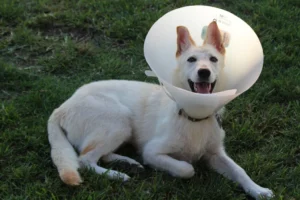After a cat is spayed, you may notice some changes in their behavior. This can be alarming for cat owners who are not sure what to expect. In this blog post, we will explore why your cat may act differently after being spayed and provide some insights on how to help them adjust.
Understanding the Spaying Procedure
When your cat is spayed, the veterinarian surgically removes her reproductive organs to prevent her from reproducing. This procedure is commonly done to control the pet population and prevent unwanted litters. While spaying is a routine surgery, it is still a major operation that can have an impact on your cat’s behavior.
The spaying procedure can cause your cat to feel some discomfort and pain afterward, which may lead to changes in her behavior. She may be a bit more lethargic, withdrawn, or irritable as she recovers from the surgery. It’s important to give your cat time to rest and recuperate after spaying, as this can help her adjust to the changes in her body and behavior.
Hormonal Changes
Following the spaying procedure, your cat will experience hormonal changes due to the removal of her reproductive organs. Removing the ovaries eliminates the production of estrogen, which can have a significant effect on her behavior. This sudden decrease in estrogen levels can lead to mood swings, increased appetite, or even decreased activity levels in some cases.
Additionally, the removal of the uterus can also impact hormonal balance in your cat, further affecting her behavior. These hormonal changes can manifest in various ways, such as increased clinginess, changes in vocalization, or even aggressive behavior. It’s essential to be patient and understanding as your cat adjusts to these hormonal fluctuations post-spaying.
Remember, every cat is unique, so the extent of behavioral changes after spaying can vary from one feline to another. Keep an eye on your cat’s behavior and consult your veterinarian if you notice any concerning or prolonged changes in her demeanor. By understanding the spaying procedure and the hormonal changes it triggers, you can better support your furry friend through this transition period.
Pain and Discomfort
After being spayed, your cat may act differently due to pain and discomfort from the surgery. Just like humans, cats can experience soreness, tenderness, and overall discomfort post-op. This discomfort can lead to changes in behavior such as decreased appetite, increased sleep, restlessness, or irritability. If your cat is acting differently after being spayed, it’s essential to consider that they may be in pain.
Recovery Process
To help your cat through the recovery process and alleviate any discomfort they may be feeling, there are a few things you can do. Make sure to provide a warm and comfortable environment for your cat to rest in. Keep them away from any loud noises or sudden movements that could startle them. Additionally, ensure they have access to fresh water and food so they can heal properly. Be gentle and patient with them as they recover, and monitor their behavior closely for any signs of distress or pain.
Tips for Helping Your Cat Recover: 1. Provide a cozy and quiet resting area for your cat. 2. Ensure they have access to fresh food and water. 3. Monitor their behavior closely for any signs of pain or discomfort. 4. Give them gentle attention and care during their recovery. 5. Follow any post-surgery instructions provided by your vet for the best outcome.
Remember, each cat is different, so it’s essential to pay attention to your furry friend’s unique needs and behaviors during this recovery period. By being attentive and supportive, you can help your cat feel more comfortable and at ease as they heal from their spay surgery.
Behavioral Changes
After being spayed, your cat may exhibit behavioral changes such as being more lethargic, eating less, or being more affectionate. This is completely normal as her body adjusts to the surgical procedure. To address these changes effectively, make sure to provide a quiet, comfortable space for your cat to rest and recover. Offer her favorite treats or toys to help boost her mood and provide gentle petting to reassure her. Monitor her behavior closely and consult with your veterinarian if you notice any concerning changes that persist.
Patience and Support
During this transition period, it’s crucial to show patience and support to your cat. Remember, she’s going through a significant change and may need some time to adjust. Be understanding of any changes in behavior and provide a calm, loving environment for her to feel safe. Spend quality time together, engage in playtime, and offer extra affection to help her feel secure. It’s essential to be patient and supportive as your cat navigates this period of recovery and adjustment.
- Be gentle and understanding with your cat as she goes through this change.
- Provide a quiet and comfortable space for her to rest and recover.
- Monitor her closely and consult with your vet if you notice any concerning changes.
- Offer her favorite treats or toys to help boost her mood.
- Spend quality time together and provide extra affection to help her feel secure.
By following these tips, you can help your cat feel more comfortable and secure during this post-spay period. Remember, patience and support go a long way in helping your feline friend through this adjustment phase.
Consult Your Veterinarian
If you notice your cat acting differently after being spayed, it’s essential to consult your veterinarian. Changes in behavior could be due to a variety of reasons, such as discomfort from the surgery or hormonal shifts. Your vet can provide valuable insights and advice to help address any concerns you may have about your feline friend’s post-spaying behavior.
Fun Fact: Fast Facts About Spaying
- Spaying is Safe: Spaying is a common surgical procedure that is generally safe for cats and helps prevent overpopulation.
- Health Benefits: Spaying can reduce the risk of certain health issues in female cats, such as uterine infections and mammary tumors.
- Behavioral Changes: Some cats may exhibit different behaviors after being spayed, such as increased appetite or decreased activity levels. These changes are usually temporary and should settle over time.
- Long-Term Effects: Spaying can have long-term positive effects on your cat’s health and well-being, contributing to a longer and happier life.
- Consult Your Vet: If you have any concerns or questions about spaying and its effects on your cat, don’t hesitate to consult your veterinarian for personalized guidance.
Remember, spaying is a beneficial procedure for your cat’s health and the overall pet population. By providing your cat with proper care and understanding during the post-spaying period, you can ensure a smooth recovery and a healthy, happy life for your feline companion.
Alex, a passionate animal lover, has experience in training and understanding animal behavior. As a proud pet parent to two dogs and three cats, he founded AnimalReport.net to share insights from animal experts and expand his knowledge of the animal kingdom.




